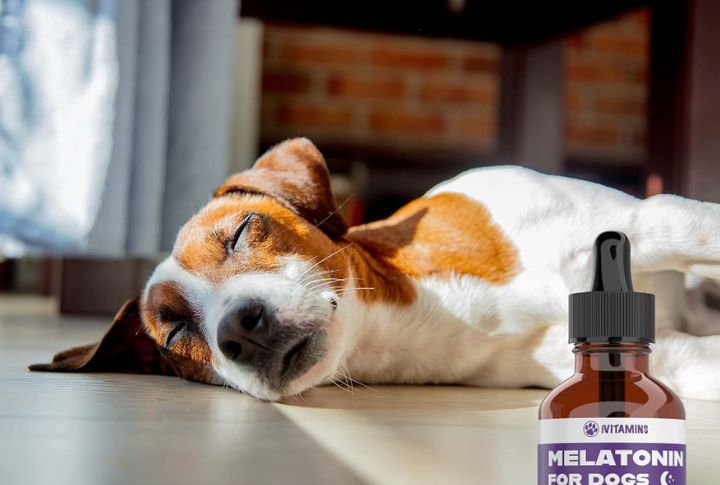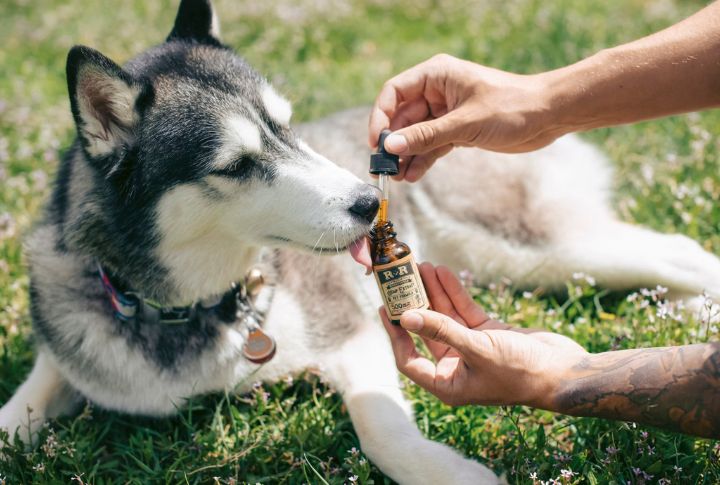Here’s What You Should Know Before You Give Melatonin To Your Dog

Melatonin seems like a no-brainer for sleep struggles, but here’s the catch: it doesn’t work the same for everyone! If you’re thinking about giving it to your pet, let’s first explore when it’s a dream come true—and when it’s not the best idea.
It Can Act As A Stress Reliever

Stress can creep into your pet’s life in unexpected ways—whether it’s due to changes in their environment or separation anxiety. Melatonin taps into the body’s natural relaxation process, easing nervous tension and helping your dog maintain emotional balance. Unlike synthetic sedatives, which can cause grogginess, this supplement works with the body’s chemistry to promote calmness.
It Helps Improve Sleep Cycle

Ever had a dog that wakes up in the middle of the night for absolutely no reason? If your pup is keeping you on their bizarre sleep schedule, melatonin might help regulate their bedtime routine. Because let’s be real—you shouldn’t have to be a sleep-deprived pet parent just because your dog thinks 3 AM zoomies are a great idea.
It Can Help In Seasonal Shedding Management

Your dog’s once-glorious coat is now dull, patchy, and shedding like a tree in autumn. You vacuum twice a day, and still—hair everywhere. Melatonin might be the secret weapon to combat this. It helps regulate seasonal shedding, promoting a fuller, healthier coat. So, no more fur-covered furniture.
Always Consult A Vet Before

There is no such thing as a self-taught pet nutritionist. Look, the internet is great, but your vet knows a little more about your dog’s health than that one blog you read at midnight. Before adding melatonin to your pup’s routine, get an expert’s opinion—because guess what? Not all dogs need it, and giving it blindly might do more harm than good.
Not All Melatonin Supplements Are Safe For Dogs

Before grabbing just any melatonin supplement off the shelf, check the ingredients. Some human-grade melatonin contains xylitol, an artificial sweetener that is toxic to dogs. Other additives, fillers, or artificial flavors may not be pet-safe either. Always choose a melatonin supplement specifically formulated for dogs.
Proper Dosage Is Necessary

Size matters. So does precision. Giving too much melatonin? Expect grogginess, tummy troubles, or even hormonal imbalances. Too little? It won’t do much at all. The right dosage depends on your dog’s weight, age, and overall health condition, which is why guessing can be risky.
It Should Accompany A Proper Diet

Without proper nutrition, even the best supplements won’t work their magic. A balanced diet provides essential nutrients that regulate sleep, stress, and overall health naturally. Melatonin can help, but only when your pup’s meals are packed with the right vitamins, minerals, and proteins. Otherwise, it’s like trying to fix a leaky roof with duct tape.
Always Keep An Eye Out For Changes

Ever had that gut feeling that something’s off? Pay attention. Your dog’s body will tell you whether melatonin is working (or not). If they seem sluggish, overly sleepy, or just… different, trust your instincts. Side effects don’t always come with major warning signs, and your pup can’t exactly tell you how they feel. Watch. Learn. Act.
Pregnant Dogs May Not Tolerate It Well

Melatonin’s effects on puppies and pregnant or nursing dogs haven’t been extensively studied, meaning there’s little data on its long-term safety. Since their bodies are still developing or supporting new life, introducing an unnecessary hormone-altering supplement could interfere with their natural biological processes.
It Should Only Be For Short-Term Use

Your dog’s body is built to handle stress naturally—melatonin should only be a temporary support, not a permanent fix. Relying on it too often can mask the real problem, whether it’s anxiety, medical issues, or a lack of proper training. Instead of making it a crutch, use it as a short-term aid while addressing the root cause.





